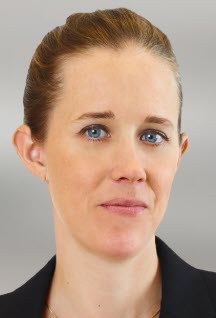Abstract
Excerpted From: Sophie Brill, Re-Righting History: A Critical Race Perspective of Dobbs v. Jackson Women's Health Organization, 39 Berkeley Journal of Gender, Law & Justice 41 (2024) (78 Footnotes) (Full Document)
 In 1973, the Supreme Court held in Roe v. Wade that the Fourteenth Amendment of the U.S. Constitution protects the right to an abortion. Nearly fifty years later, the Court reversed itself with Dobbs v. Jackson Women's Health Organization, overruling Roe and its progeny and returning the issue of abortion to the states. In addition to overturning a rule that had been affirmed and reaffirmed many times over, the Dobbs decision effectively withdrew a right that had been understood as “fundamental” for nearly half a century. In truth, however, stood on the shoulders of a long line of cases interpreting the Reconstruction Amendments--particularly the Fourteenth Amendment--in a way that willfully undermined the reach of those Amendments and prevented them from having the broad, affirmative powers they were meant to have.
In 1973, the Supreme Court held in Roe v. Wade that the Fourteenth Amendment of the U.S. Constitution protects the right to an abortion. Nearly fifty years later, the Court reversed itself with Dobbs v. Jackson Women's Health Organization, overruling Roe and its progeny and returning the issue of abortion to the states. In addition to overturning a rule that had been affirmed and reaffirmed many times over, the Dobbs decision effectively withdrew a right that had been understood as “fundamental” for nearly half a century. In truth, however, stood on the shoulders of a long line of cases interpreting the Reconstruction Amendments--particularly the Fourteenth Amendment--in a way that willfully undermined the reach of those Amendments and prevented them from having the broad, affirmative powers they were meant to have.
Inspired by Critical Race Judgments, a collection of U.S. court opinions rewritten a Critical Race perspective, this opinion re-writes the Dobbs majority decision as if it were written by a Supreme Court that acknowledges its flawed history and addresses it head-on. The opinion re-frames the issue presented and uses historical context to show that reproductive autonomy is an issue of race as well as gender, and that the inability to control one's body is precisely the kind of harm the Reconstruction Amendments were meant to guard against. It then finds that Mississippi's 15-week abortion ban and the fetal personhood theory supporting it are nothing less than a continuation of the relentless state regulation and control that Black women have experienced since they first arrived on this continent. In holding that such policies violate the Reconstruction Amendments as they were meant to be interpreted, the opinion acknowledges the fact that the United States' practices have long conflicted with its founding promises, and demonstrates that only when that acknowledgement is incorporated into our legal framework can the two be brought into alignment.
[. . .]
We hold that the central holdings of Roe and Casey are not just affirmed but expanded. The fundamental right to reproductive autonomy includes the right to choose not to have a child, the right to have a child at the time of one's choosing, and the right to do so safely and with dignity. Denial of reproductive autonomy was an essential tool used in the perpetuation of chattel slavery and is accordingly inconsistent with the Reconstruction Amendments' effort to abolish slavery and its badges and incidents. HB 1510 impermissibly infringes on the inalienable freedoms protected by these Amendments and is accordingly unconstitutional.
Sophie Brill is a 2023 graduate of St. John's University School of Law.


